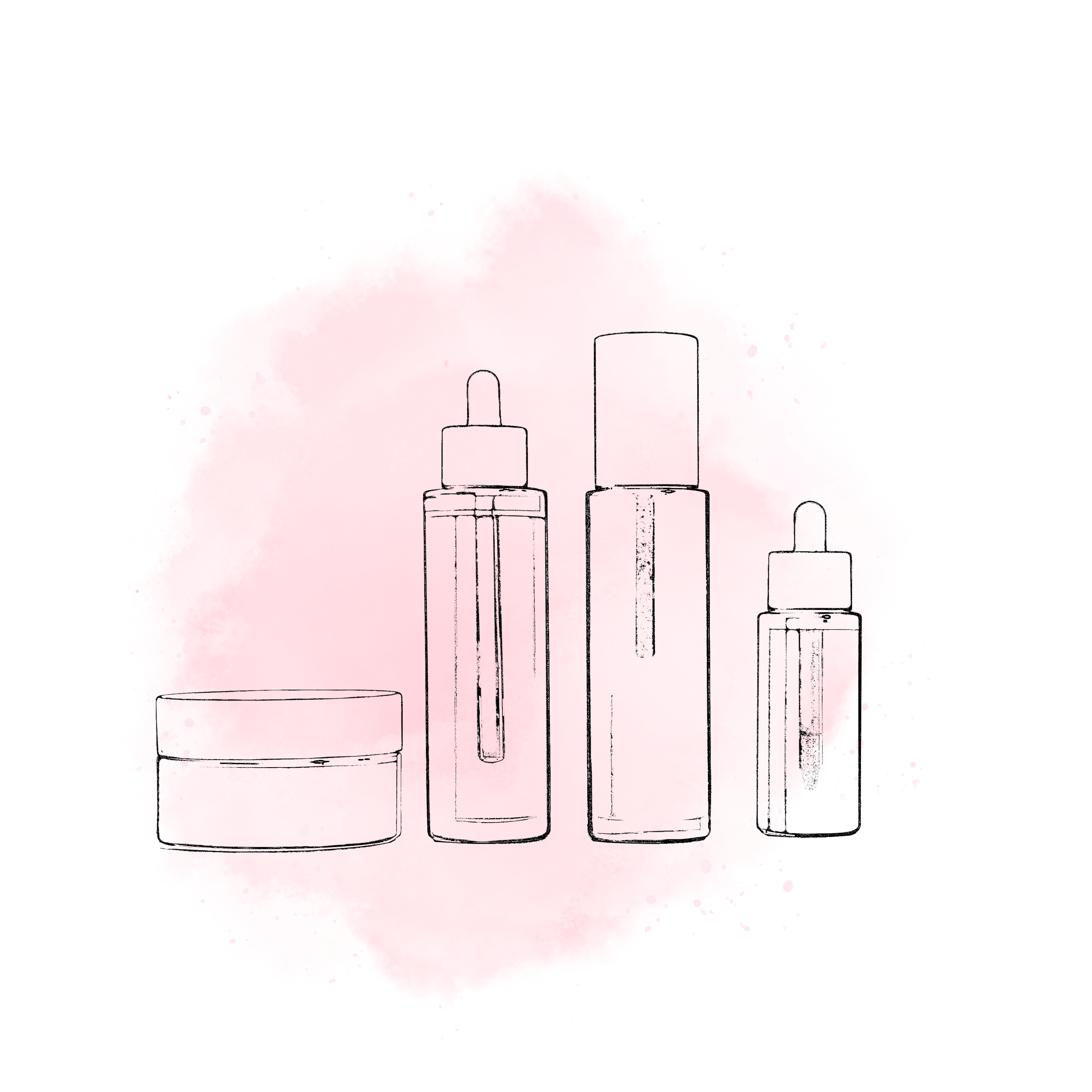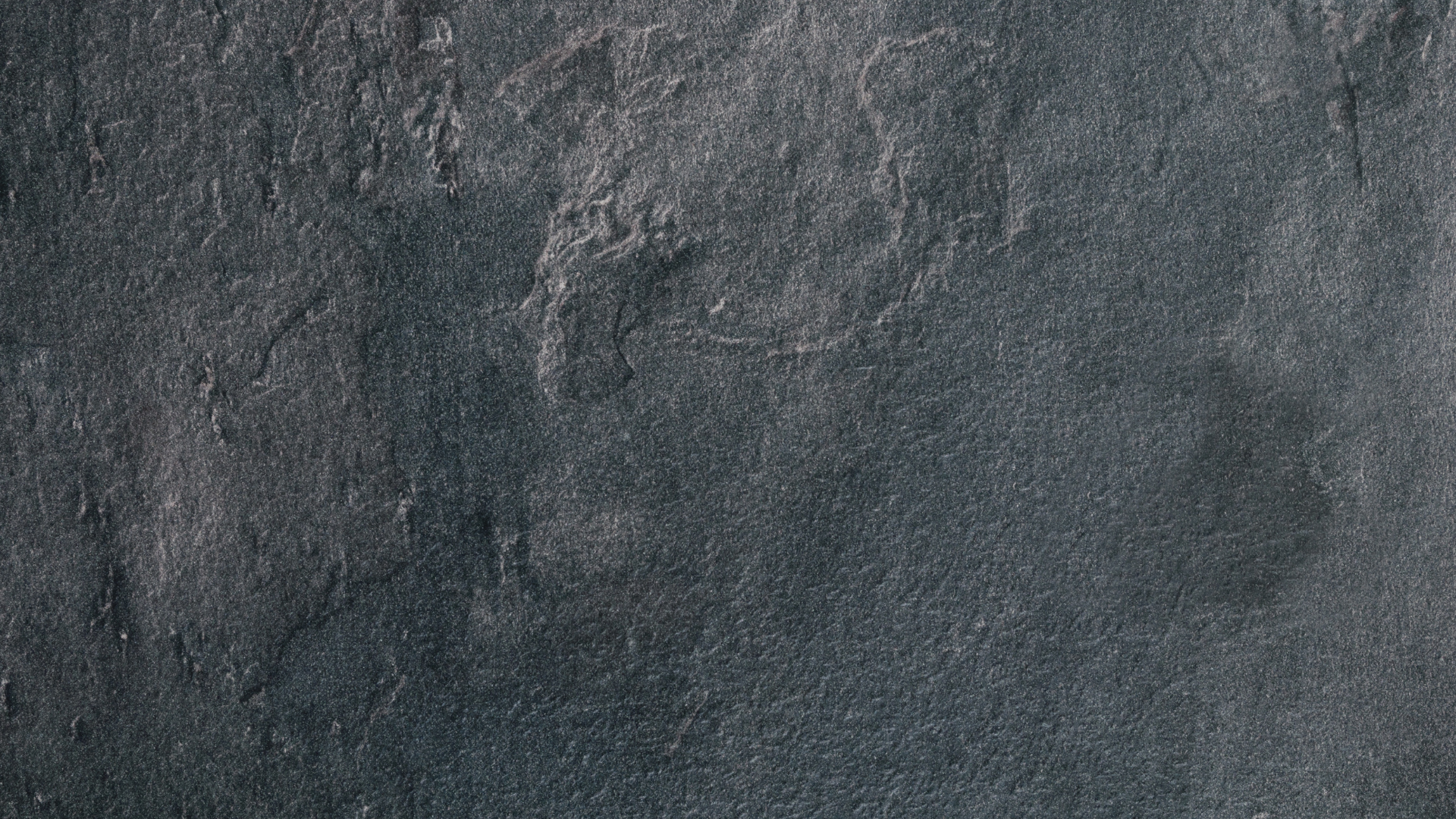Date: 01/09/25
In an age where beauty often comes at the cost of the planet, PureNeem is rewriting the narrative—starting with our packaging.
Our signature use of glass and walnut wood isn’t just for visual appeal; it’s a conscious decision rooted in purity, sustainability, and performance.
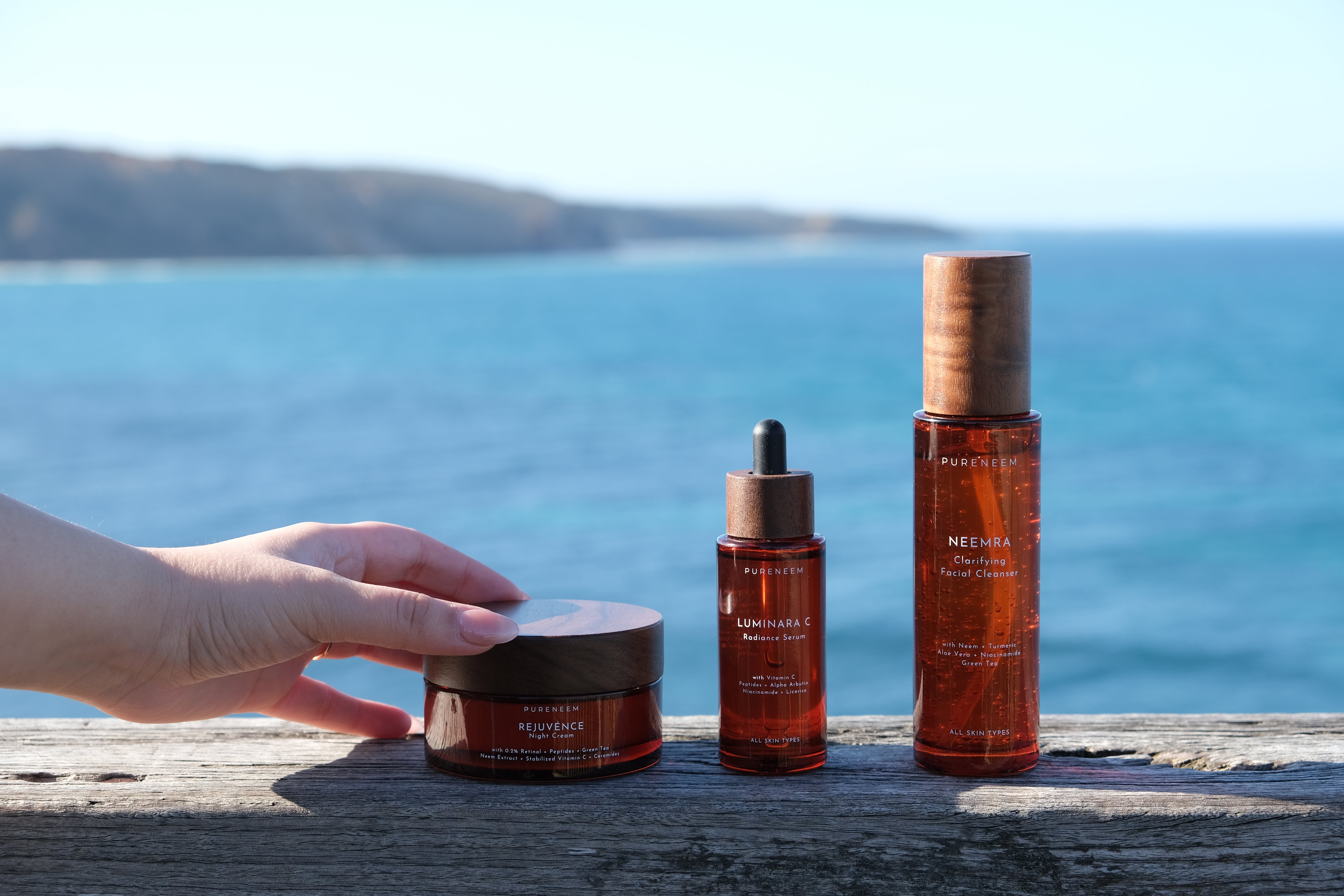
Why Glass, Not Plastic?
Plastic may be everywhere, but it’s far from ideal for skincare—both in formulation stability and environmental impact.
- Non-reactive and Non-leaching: Glass is inert and impermeable. It won’t interact with sensitive actives like Vitamin C, peptides, or botanical extracts—preserving both efficacy and safety.
- No Microplastic Risk: Unlike plastics that degrade into microplastics, glass poses no such threat to your skin or the environment.
- Infinitely Recyclable: Glass can be recycled endlessly without loss in quality—unlike plastic, which degrades after each cycle.
- Preserves Freshness: Airtight, UV-protective glass helps extend shelf life by shielding ingredients from oxidation, light, and air.
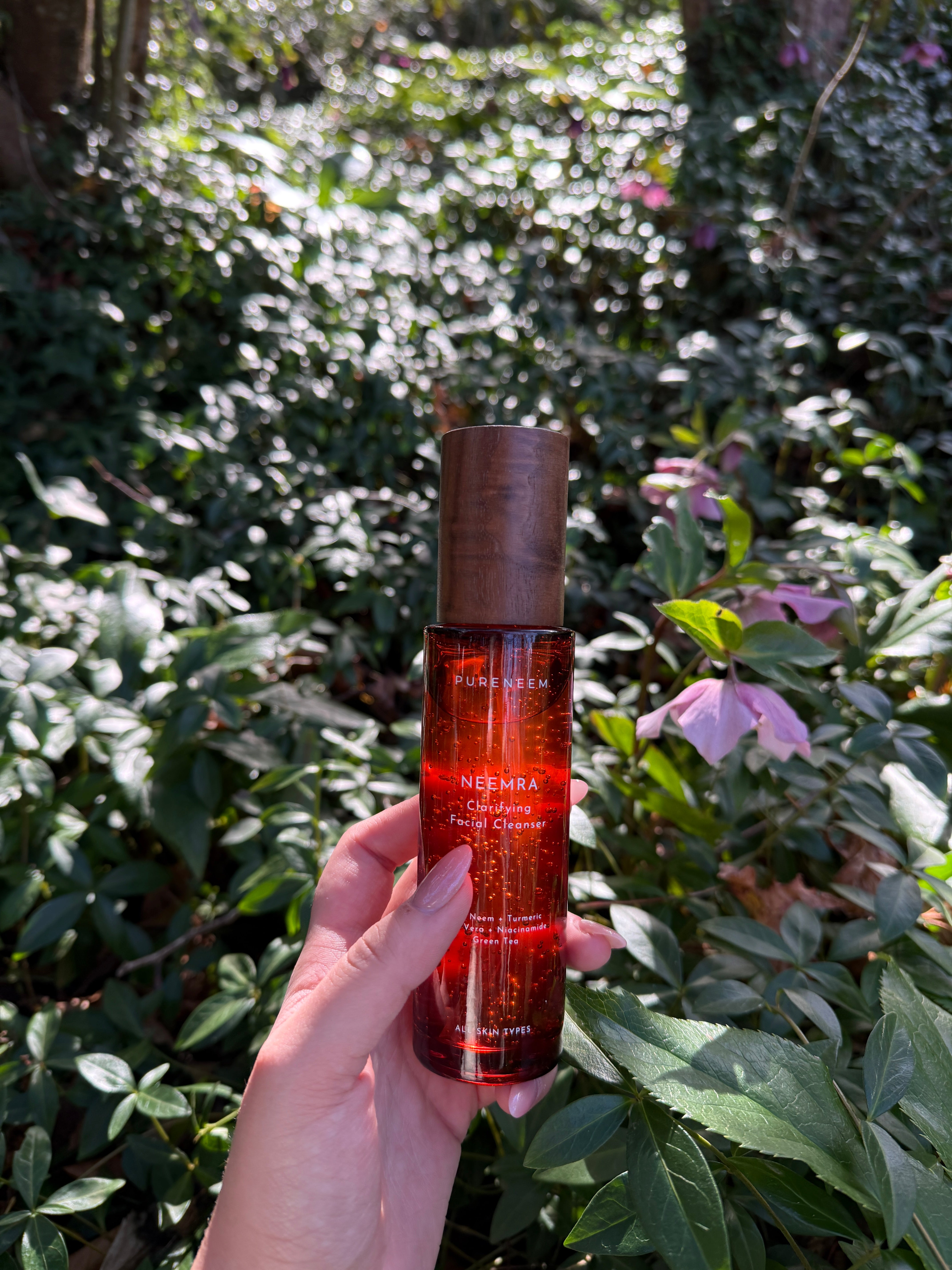
Why Amber-Coloured Glass?
We selected amber glass for its unique ability to filter out harmful UV and blue light.
- Protects Potency: UV light can degrade powerful actives—especially antioxidants, retinoids, and herbal infusions. Amber glass keeps them stable.
- Inspired by Apothecary Heritage: The deep, earthy hue of amber glass also reflects a timeless, botanical aesthetic—blending ancient Ayurvedic wisdom with modern formulation.
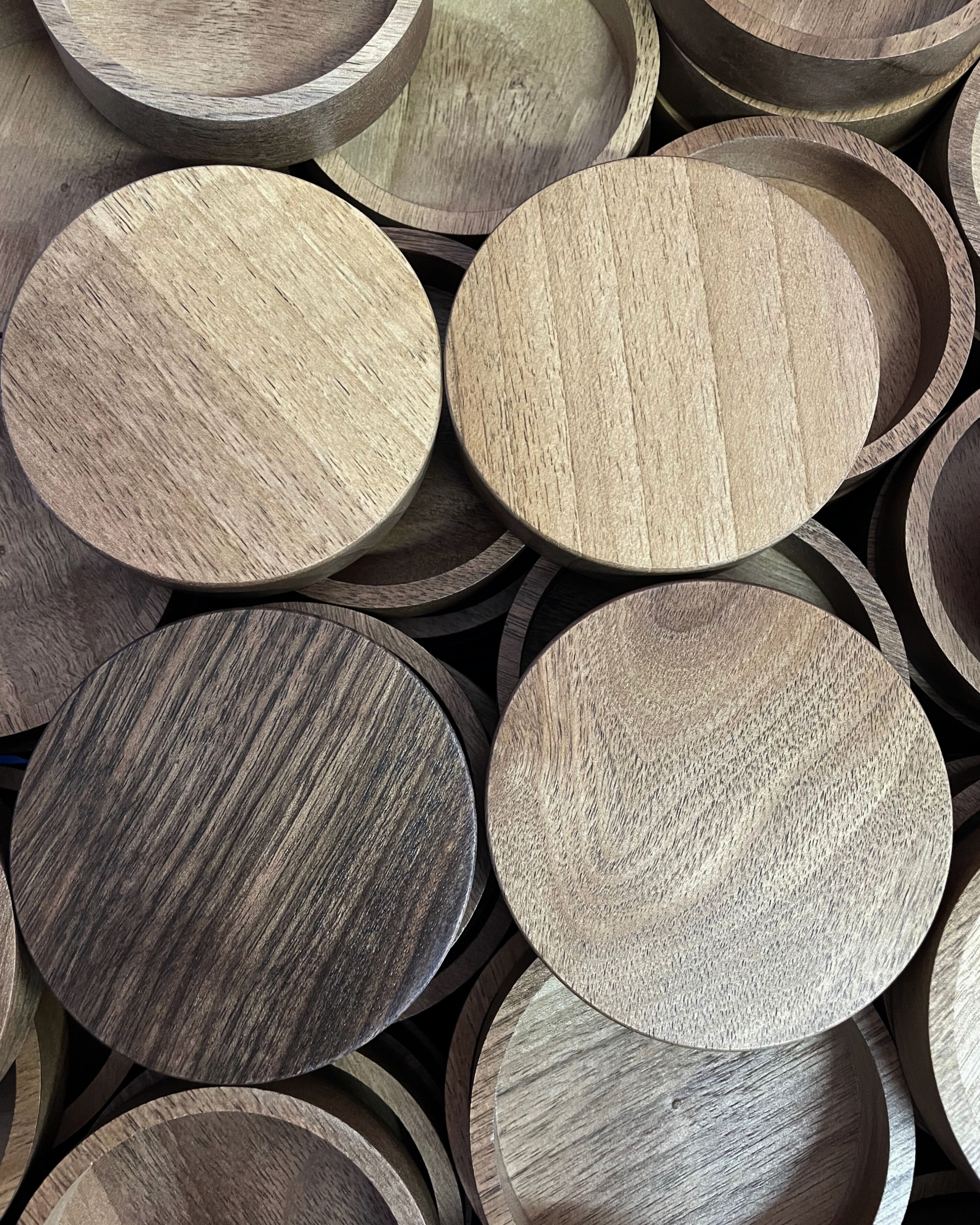
Why Walnut Wood?
Most skincare closures are plastic—not ours. We chose walnut wood for our caps, lids, and accents because it’s:
- Naturally Durable: Walnut is a strong hardwood with a long life cycle and low maintenance, reducing long-term waste.
- Sustainably Sourced: We select walnut from responsible forestry operations that minimize deforestation and overharvesting.
- Compostable & Minimal Impact: When disposed of, walnut wood biodegrades naturally—unlike plastic, which can persist in landfills for centuries.
- Warm, Elegant, and Rooted in Nature: Walnut’s rich tone perfectly embodies our Ayurvedic-meets-science ethos. It’s tactile, grounding, and a joy to hold.
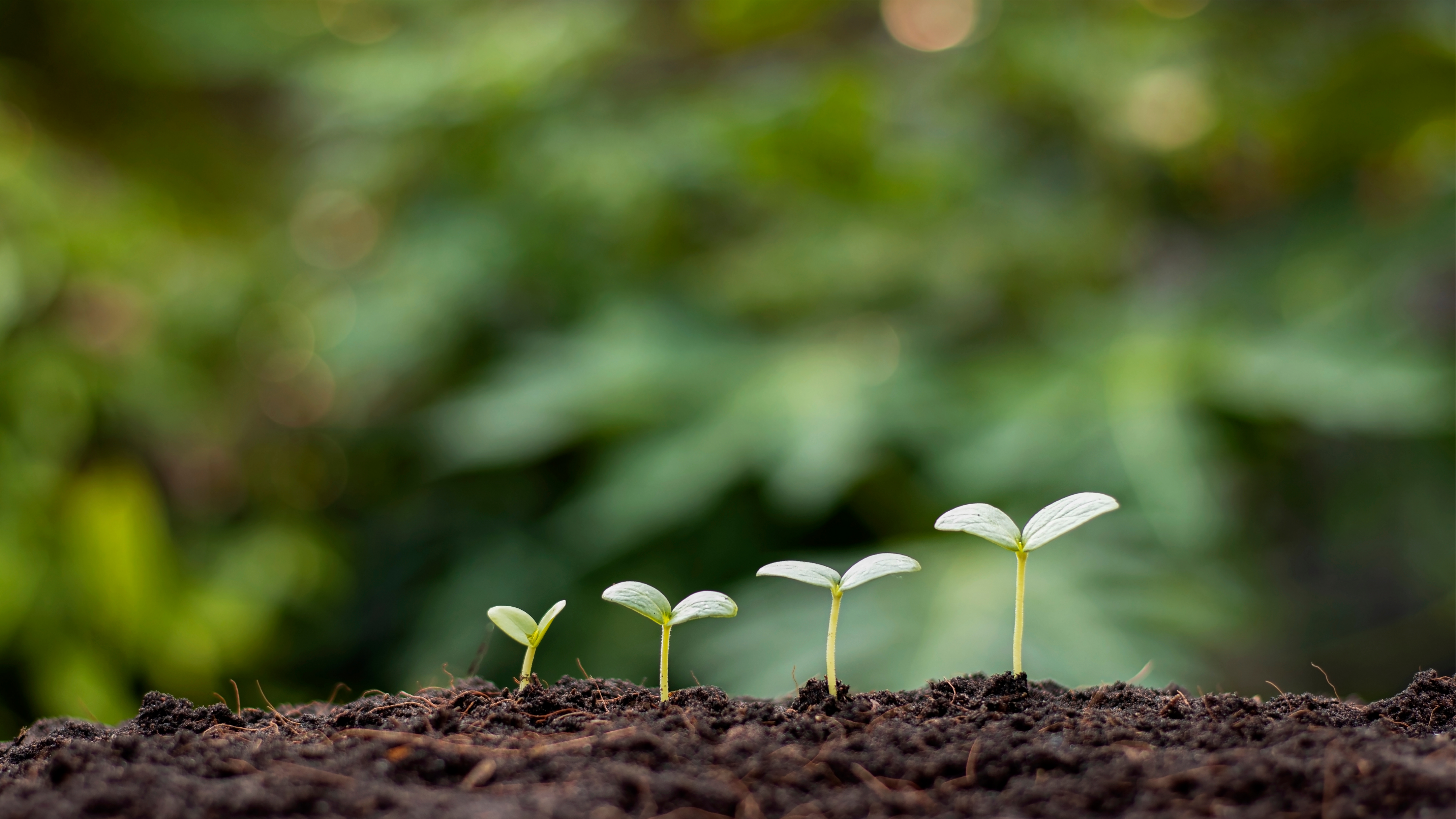
Closing Thoughts
Our packaging isn’t an afterthought—it’s an extension of our values. By choosing amber glass and walnut wood, we honour the integrity of our formulations, reduce our environmental impact, and offer you something you can feel good about using. Thoughtful outside, potent within—that’s the PureNeem promise.
References
- Hopewell, J., Dvorak, R., & Kosior, E. (2009). Plastics recycling: challenges and opportunities. Philosophical Transactions of the Royal Society B: Biological Sciences, 364(1526), 2115–2126.
- Nguyen, T. M. P., et al. (2020). Microplastic contamination in food and implications for human health. Food Science & Nutrition, 8(12), 5236–5247.
- Marsh, K., & Bugusu, B. (2007). Food packaging—roles, materials, and environmental issues. Journal of Food Science, 72(3), R39–R55.
- Tang, S., et al. (2018). Photodegradation of cosmetic ingredients under UV light. Journal of Photochemistry and Photobiology B: Biology, 180, 89–97.
- Mantia, F. P. L., & Morreale, M. (2011). Green composites: A brief review. Composites Part A: Applied Science and Manufacturing, 42(6), 579–588.
- Gupta, S., & Kainthola, A. (2017). Bamboo and wood as sustainable alternatives to plastic. International Journal of Advanced Research in Science, Engineering and Technology, 4(9), 4462–4467.

